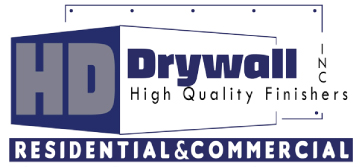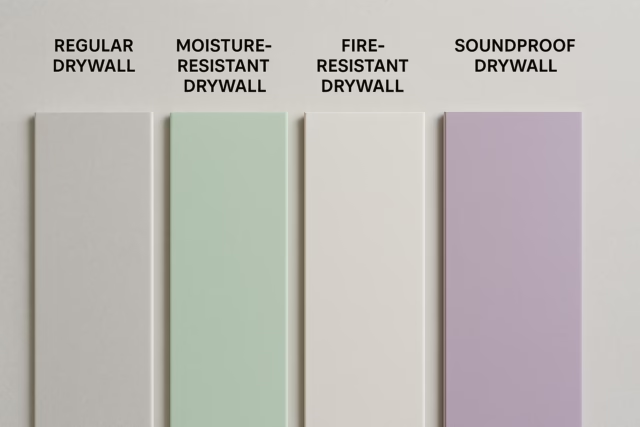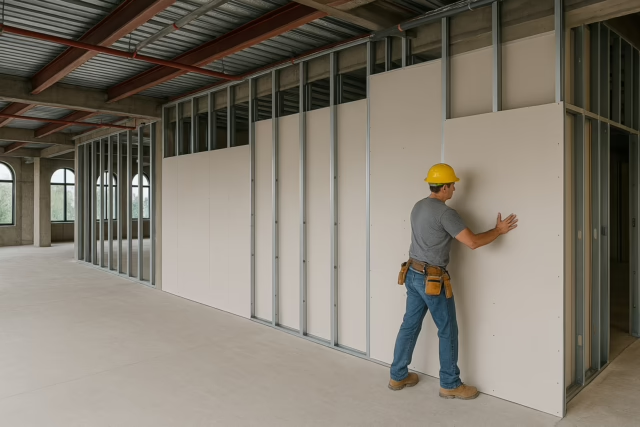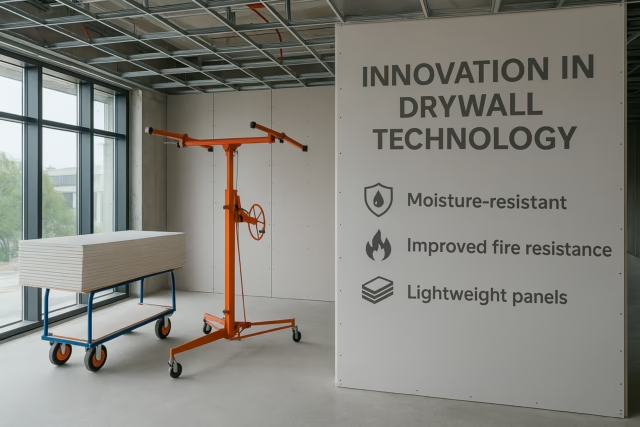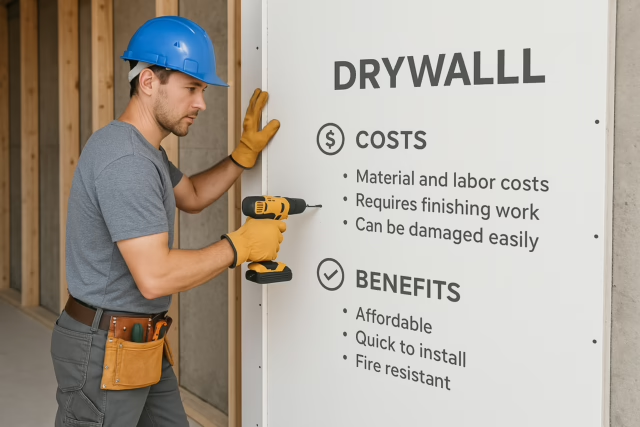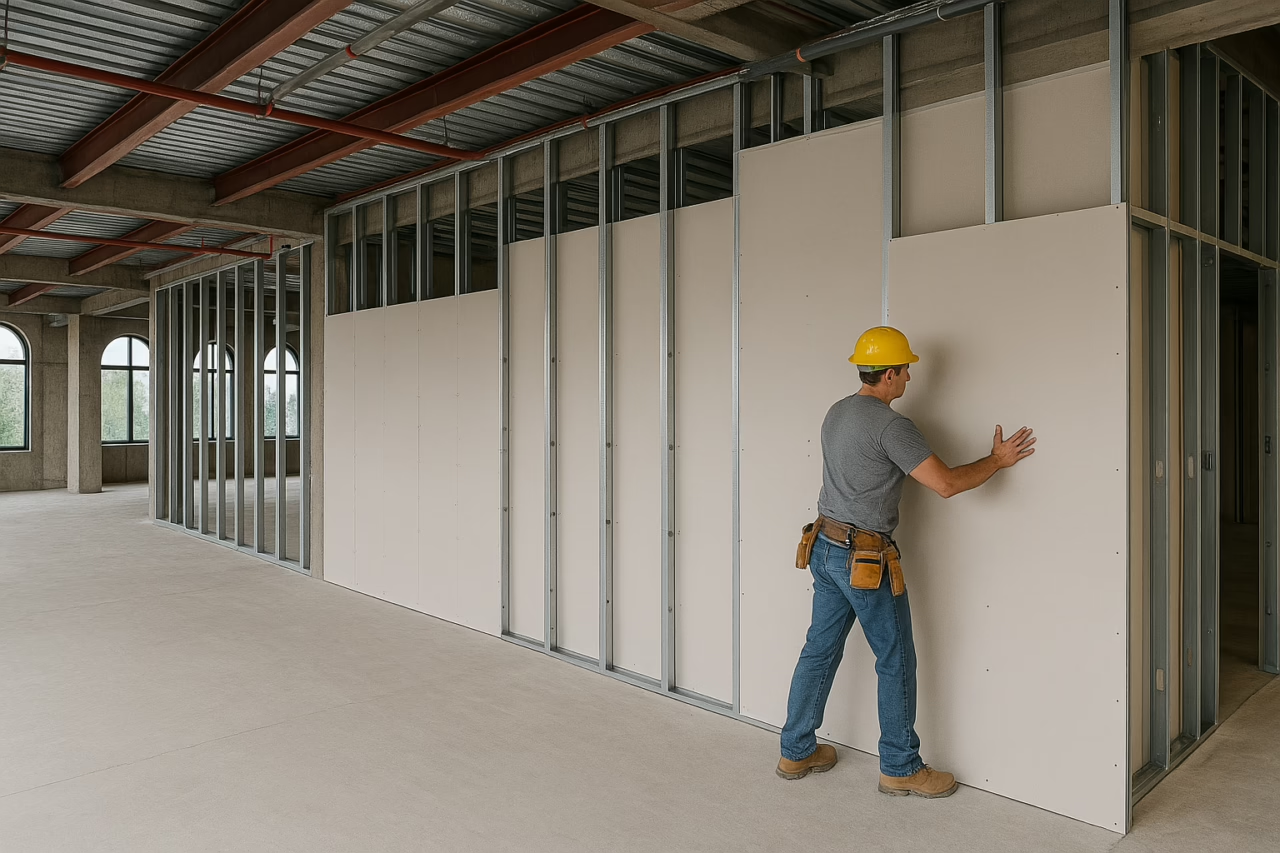In today’s fast-paced construction environment, developers and contractors demand solutions that are not only cost-effective but also high-performing and visually appealing. One such solution is commercial construction drywall, a go-to material for interior wall systems across office buildings, retail spaces, hospitals, schools, and more.
This guide explores the top advantages of using drywall in commercial buildings, offering insights into cost, performance, and design flexibility.
Why Is Drywall Ideal for Commercial Construction?
Drywall has long been a staple in the construction industry—but for commercial spaces, it brings even more value. It allows builders to meet strict codes, tight deadlines, and modern design standards without compromising quality.
👉 Explore how we bring high-quality drywall systems to life on our Services page.
What Are the Core Benefits of Commercial Drywall?
1. Speed and Ease of Installation
Drywall offers fast, clean installation that reduces overall project timelines. With pre-cut sheets and lightweight materials, crews can complete large-scale interiors efficiently—minimizing labor costs and delays.
2. Cost-Effectiveness
Compared to other wall materials like plaster, concrete, or wood panels, drywall provides exceptional value per square foot. It’s affordable to install, maintain, and repair.
3. Design Flexibility
Drywall supports a wide range of finishes—from smooth painted surfaces to textured patterns and custom architectural features like arches or soffits. It allows commercial interiors to balance form and function.
4. Fire Resistance and Safety
Fire-rated drywall, such as Type X or Type C, is essential in commercial buildings to meet code requirements and enhance occupant safety. These panels help delay flame spread and provide critical fire separation.
5. Acoustic Performance
Modern drywall systems now incorporate sound-dampening features, making them ideal for conference rooms, hotels, or healthcare facilities where privacy and comfort matter.
Looking for acoustic drywall solutions for your business? Let’s talk—contact us here.
Where Does Drywall Perform Best in Commercial Spaces?
Drywall is highly adaptable and suitable for nearly every area within a commercial building:
- 🏢 Office partitions and cubicles
- 🛍️ Retail back walls and display areas
- 🏨 Hospitality interiors including lobbies and rooms
- 🏫 Educational facilities like classrooms and corridors
- 🏥 Healthcare settings with specialty moisture- and mold-resistant drywall
Visit our About Us page to learn how HD Drywall supports diverse commercial sectors with expert service and modern materials.
What Types of Drywall Are Best for Commercial Projects?
Choosing the right type of drywall depends on your project’s specific needs. Here are some common types used in commercial construction drywall applications:
- Standard Drywall: For general partitions and ceilings
- Type X (Fire-Rated): Required in fire-separation walls
- Moisture-Resistant Drywall (Green/Purple Board): Ideal for restrooms, break rooms, and utility areas
- Soundproof Drywall: Used in conference rooms, hotels, or theaters
- Impact-Resistant Drywall: Best for high-traffic corridors or educational institutions
Explore how we tailor solutions by browsing our Facebook page.
Final Thoughts
When it comes to commercial construction drywall, the benefits go beyond affordability. It enables flexible design, compliance with fire and sound codes, and faster completion timelines—making it the preferred interior solution for modern commercial projects.
Whether you’re renovating office space or constructing a new business facility, HD Drywall delivers reliable, code-compliant drywall systems tailored to your needs.
Frequently Asked Questions
1. Why is drywall preferred in commercial construction?
Because it offers speed, flexibility, and cost efficiency, all while meeting fire and acoustic performance standards.
2. Is drywall safe for commercial buildings?
Yes. Fire-rated and mold-resistant drywall options meet safety codes and improve indoor air quality.
3. Can drywall be customized for unique commercial interiors?
Absolutely. Drywall supports creative layouts, recessed features, and advanced finishing techniques.
4. How long does commercial drywall installation take?
Timelines vary by project size, but drywall installs faster than most traditional materials.
